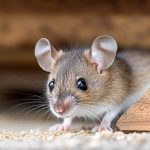Mouse Bites: Hazards and What to Do With It?
A mouse is usually a harmless creature. However, they will bite you if they feel threatened or if you handle them.
But is mouse bite dangerous? Yes, it is. In fact, the bite of different mice can give you different kinds of diseases. To eliminate the harm, in the initial stage, an antiseptic cream will do. But if you get mice bite fever or infection, you have to go through antibiotic treatment.
We have some easy cures in our hands for you, too. So, join us on the journey where we treat your rodent bite effectively.
Is Mouse Bite Dangerous?
A mouse bite can be threatening depending on a variety of circumstances. For example, the breed, condition, and the way the person responds to the bite. It will sting a bit but the aftermath is grave.
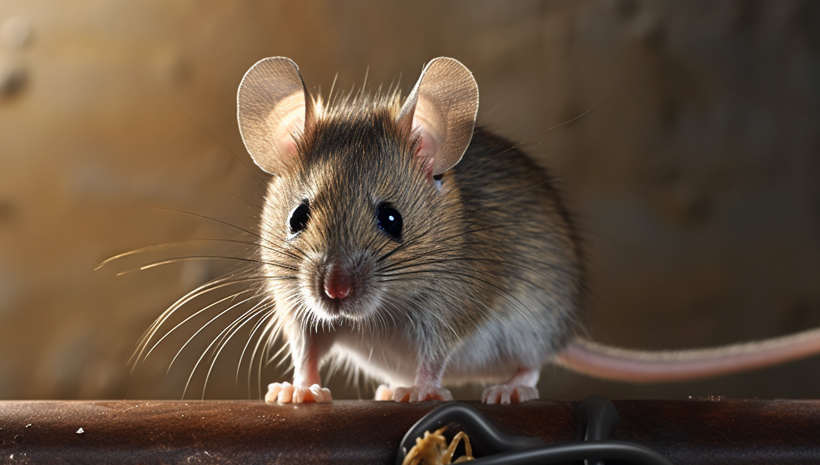
Moreover, mice rarely come in close contact with people. So, there is a slim chance of you getting bitten by these small creatures. In rare cases, if you do get bitten, you should know what you are up for.
Infection
Mice may carry germs on their front teeth and in their saliva. It may trigger infection if they bite you. Infections can range from minor to severe. In drastic cases, it can faze the heart.
Allergic Reaction
Some people are allergic to animal saliva or proteins in their urine. So, the saliva can cause a reaction of allergy to a mouse bite. Allergic reactions range in severity from minor irritation and redness to more serious manifestations.
In research labs, it is a frequent occurrence. In 2014, a man was bitten by a lab mouse and developed rashes.
Disease Transmission
Different types of mice carry different diseases. Though rare, they can also transmit these diseases through their bite.
Here is a table of different types of Mouse and the diseases they carry:
| Common Name | Mouse Species | Diseases Carried |
|---|---|---|
| Norway Mice | Rattus norvegicus | Leptospirosis, plague, fever, murine typhus, etc |
| Roof Mice | Rattus rattus | Toxoplasmosis, leptospirosis, murine typhus, fever, salmonellosis (food contamination) |
| House Mouse | Mus musculus | Lymphocytic choriomeningitis (LCMV), Salmonellosis, Mouse-bite fever |
| Pacific Mouse | Rattus exulans | Hantavirus Pulmonary Syndrome (HPS) |
| Asian House Mouse | Rattus Tanezumi | Leptospirosis, mouse-bite fever, Salmonellosis |
| Asian Black Mouse | Rattus rattus diardii | Leptospirosis, mouse-bite fever, Salmonellosis |
| Deer Mice | Peromyscus maniculatus | Hantavirus, Lyme Disease |
Mouse Bite Identification
Typically a mouse’s length is about 3-4 inches. However, for such a small creature their front two teeth are very sharp. These two teeth easily punctuate human skin. The puncture wound will have a sharp pain. Some drops of blood will definitely ooze. The worst outcome is infection.
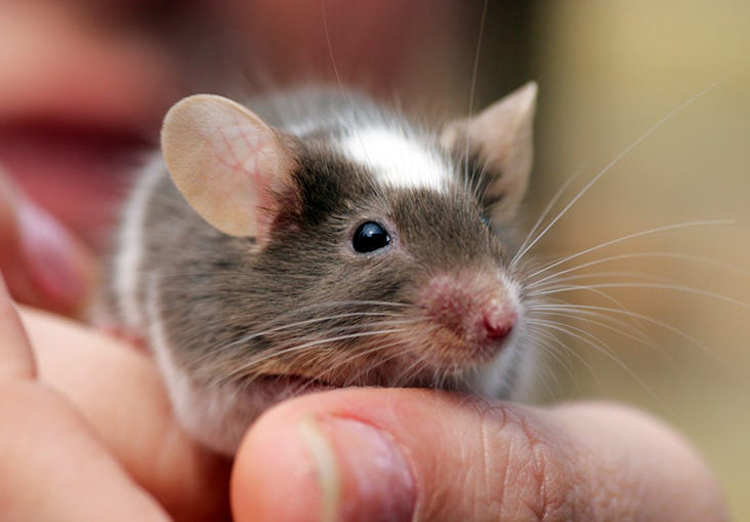
These are the signs of a mouse bite:
Warmth and Redness
Any injury on the skin causes redness. But if you see that the redness is spreading from the initial wounded area, then it is a sign of infection. The redness often comes with warmth and fever.
Shooting Pain
It’s typical to feel some discomfort and swelling close to the bite site. Another sign could be that the area will start to feel more tender or irritated.
Mouse Bite Warning Signs- Sings of Infection
One thing you should know here is that not all bites will lead to infection. So how would you differentiate between a normal bite and an infection? Well, here are some signs of infection:
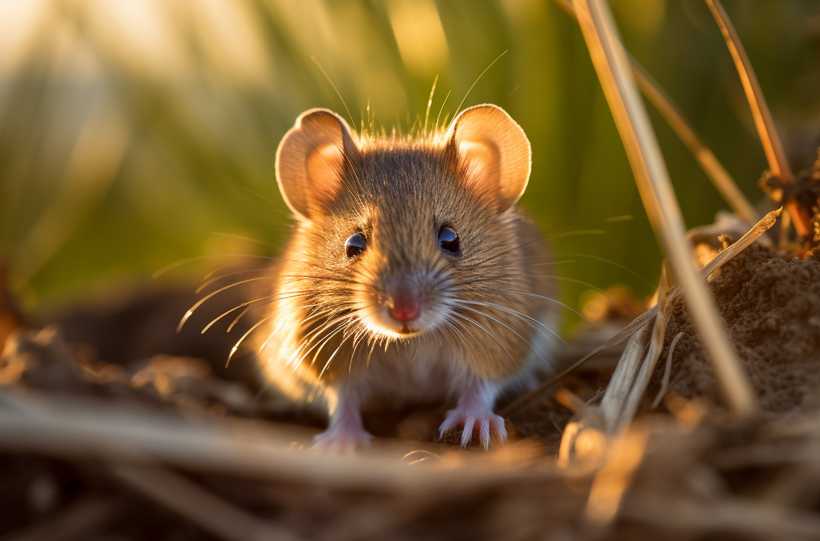
Pain
The mouse bite will sting for a few days. However, if the swelling and discomfort get worse over time then it is definitely a sign of infection.
In some cases of infection, the nearby lymph nodes may become swollen.
Fever
If you get a fever after the bite, then you should treat it as a sign of infection as well. There might be some other signs like nausea, dizziness, stomachache, joint pain, etc.
Discharge
If the wound generates a pus-filled or murky discharge, it is most certainly infectious. Pus is an indication that the body is fighting the infection. But it can spread too. So, you need to treat it immediately to stop it.
Mouse Bite Treatment at Home
Home remedies for mouse bites can aid in healing and prevent infection. But mouse bites may carry dangerous bacteria and diseases. So it’s important to get a medical evaluation.
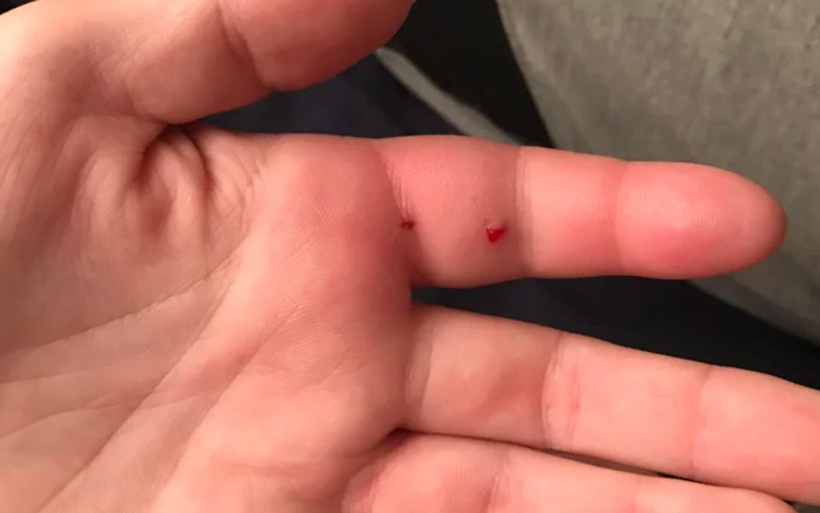
Here are some steps to take if you choose to treat a minor mouse bite at home:
Step One: Cleansing
First, you have to clean your injuries. For that, thoroughly clean the bite area with mild soap and warm water. Gently remove the blood and any remaining dirt from the wound. This helps mitigate the possibility of infection.
Step Two: Pressure Application
Inspect the area after that. Apply mild pressure with a clean cloth or sterile gauze to the bite if it is bleeding too much.
Step Three: Antiseptic
After cleaning the wound, apply an over-the-counter antiseptic solution. Some examples could be hydrogen peroxide or povidone-iodine to further disinfect the area. Steer clear from using any antiseptic alcohol as it may cause irritation and tissue damage.
Step Four: Ointment
After cleaning and drying the wound, apply a thin layer of healing ointment like Aquaphor, Elastoplast, or any other soothing ointment you have near you. The ointment will give you a soothing sensation and also will help prevent the infection.
Step Five: Bandaging
Now put a bandage on the wound. If you want you can take pain relievers. However, don’t shy out from consulting with a doctor if necessary.
Step Six: Resting
Resting is the key. Rest helps the damaged tissues to heal properly. Also, heed any indications of infection.
Antibiotic Ointment for Mouse Bite
Home treatment is the first-aid step. The real treatment is antibiotics. If the bite causes infection or Mouse-bite fever then you need to consult a doctor. He will prescribe you antibiotics. The antibiotic they recommend will most likely be:
- Penicillin
- Amoxicillin
- Doxycycline
- Erythromycin
The doctor will advise you to take the medicine for five to ten days. Sometimes the infection can even have the chance to cause heart damage. In that case, the doctor may even increase the dosage level.
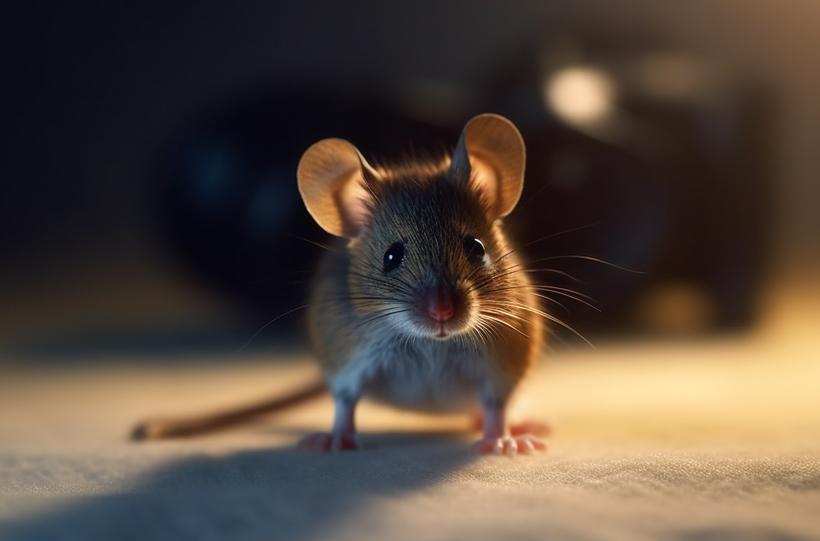
You should also get a tetanus shot after that bite. Tetanus is caused by a bacteria named Clostridium Tetani. This bacteria can enter the body through wounds or cuts, including animal bites. It is a dangerous infection that causes severe muscle pain.
If you didn’t have a shot in the last 5 years then you need to get a tetanus toxoid vaccine immediately after the biting.
After understanding the implications and treatments for mouse bites, it’s essential to proactively prevent these critters from even getting close, especially when it comes to the sanctity of your bedroom. Dive into our comprehensive guide on how to keep mice away from your bed for tips on ensuring undisturbed slumbers. Curious about the vocalizations of these tiny creatures? Discover the reasons why mice squeak and the various sounds they make in our enlightening article.FAQ
Here is more info to guide you on this topic. If you ever got bitten by mice this information may come in handy.
Can Pet Mice Bite you?
Yes, even a pet mouse may bite you. When you handle them they might bite you accidentally. It might happen because they got scared of you or are unfamiliar with your touch.
When to See a Doctor If I Get Bitten By A Mouse?
Whenever you are bitten by a mouse, you should consult a doctor. Do it even though the wound appears to be minor. Mice can transmit germs in their teeth and saliva that may result in potentially fatal infections.
Do I need Rabies Vaccination for mouse Bite?
You do not need a rabies vaccine for a mouse bite. Rabies is an infection that is spread through the fluids of an infected animal, commonly via bites or scratches. Small rodents, such as mice, rats, and squares are not rabies virus carriers. Larger creatures like dogs, bats, etc., mostly have that.
Last Words
We often ignore small cuts and scratches on our skin. But mouse bites are definitely not something we should ignore. In the initial stage, the bite may not cause any severe damage. But sometimes it may cause infection or transmit dangerous diseases.
So, you should always consult a doctor. Remember these small animals don’t bite you out of fun. So there is no chance of you getting Mouse bites frequently. If you are breeding a mouse then wear gloves around them. And if there is any mice infestation around you then call a pest control.




